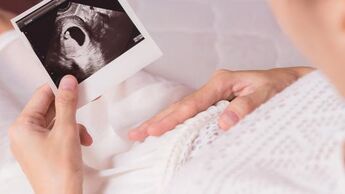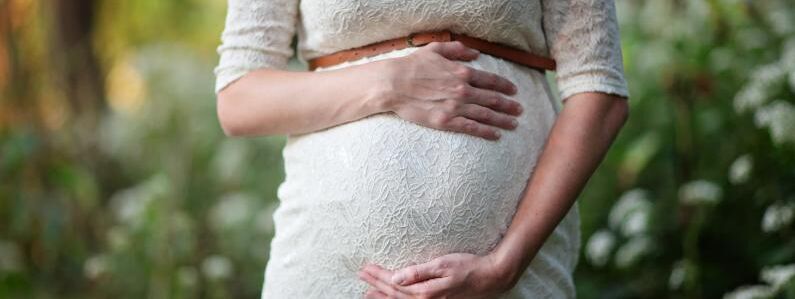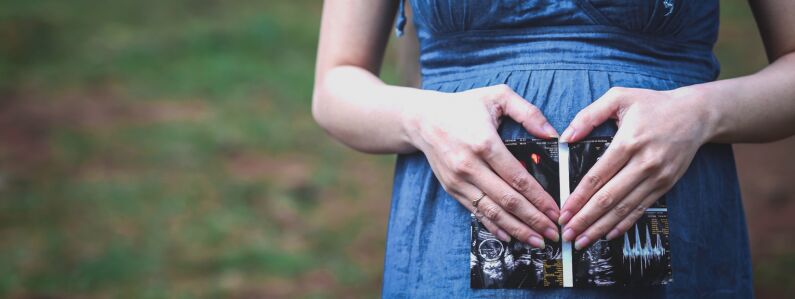
Thirty years ago, a vote was held in Parliament which demarcated babies with disabilities from all other babies, singling them out as a category apart, with no rights to care and protection.
This was done in the name of women’s rights and liberty. “Her body, her choice.”
As a result of this vote, these babies, unlike all other babies, could be aborted after 24 weeks gestation up until the moment of their birth at 40 weeks gestation or more.
Many of us will have friends, loved ones, children even, who first saw daylight weeks or even months before they reached that same developmental milestone. Some of us will know how it feels to hold one of these tiny babies in our hands. We know the joy these tiny wriggling humans bring as they grow day by day, and the exceptional medical care which enables them to thrive. Babies such as these are rightly protected by the full weight of the law. And even before birth our law recognises the dignity of these growing babies, from the 24th week of gestation, with weighty criminal sanctions that protect them from harm. It is a criminal act for any person to abort a baby in Great Britain beyond 24 weeks gestation.
But the world is different for those babies with disabilities.
Parents of children with conditions such as Down’s Syndrome frequently speak of how they are offered terminations weeks, or even days before their child’s birth.

Now lawmakers are seeking an extension of this provision of late-term disability-selctive abortion to the province of Northern Ireland: “Her body, her choice” is the constant refrain.
When this vote was passed some 30 years ago parliamentarians spoke of babies with disabilities in utero as “hideously deformed”, as having “abominable handicaps”. They spoke of their potential futures as a “wretched existence”, and hypothesised that such babies may rather never be born than experience the life that would await them. They testified that “more than half the children born with handicaps have to live out their lives in institutions."
When this vote was passed some 30 years ago parliamentarians spoke of babies with disabilities in utero as “hideously deformed”, as having “abominable handicaps”. They spoke of their potential futures as a “wretched existence”, and hypothesised that such babies may rather never be born than experience the life that would await them. They testified that “more than half the children born with handicaps have to live out their lives in institutions."
Another member spoke personally of his wife’s and his own disposition: “if she and I had known that either of our children would be grossly handicapped or disabled, we would have sought an abortion at the first possible opportunity,” sharing that they “were not sufficient people to cope with that.”[4]
These are not kind words to describe a person with a disability and they reflect a societal attitude from which one would hope we have moved on.
And what were the conclusions that these parliamentarians reached? “I therefore believe that it is the right of parents to decide whether to have an abortion if the child would be grossly disabled.” … “It must be for those women themselves to make that choice.”
The vote was 277 to 201, that the rights of babies with disabilities should be eroded.
What about today?

Much has changed in public perceptions of disability. After years of campaigning by persons with disabilities the Disability Discrimination Act was passed in parliament in 1995 – making in unlawful to discriminate against people with disabilities for the first time. This Bill encompassed aspects of employment, education and transport offering those with disabilities protection against discrimination and exclusion. It did not offer all that many had hoped for, but nonetheless it was a significant beginning.
Since then the Northern Ireland Act 1998 has placed a statutory duty on public authorities to have due regard to the need to promote equality of opportunity for “persons with a disability.” In 2006, the Disability Discrimination (Northern Ireland) Order, further created a requirement that public authorities “promote positive attitudes towards disabled persons.” And in 2009, the UK became a signatory to the UN Convention on the Rights of Persons with Disabilities (UNCRPD), a landmark treatise which upholds the full rights of persons with disabilities to freedom, dignity and equality. It shifts us from a medical to a social/human rights model of disability: instead of asking what defect in a person prevents them from full participation in society, we ask what obstacle in society is getting in their way.
Disability abortion is out of step with the times
In thirty years much has changed. But those 14 weeks prior to birth represent a strange lacuna. There we abide by the attitudes of a time gone by, where babies with disabilities were “hideously deformed”, destined to a “wretched existence”. A time where it was acceptable to suggest a person with disabilities might rather be dead than alive, where one might say “we could not cope with that.” Despite recognising the value of all other babies at this stage, and the importance of their protection, if a baby with disabilities is involved we say simply, “her body her choice”.
The Disability Rights Commission (now the Equality and Human Rights Commission) have said of the disability abortion provision (the subject of the 1990 vote) that it:
“is offensive to many people; it reinforces negative stereotypes of disability… [and] is incompatible with valuing disability and non-disability equally”.[8] The UNCRPD in 2017 said “The Committee is concerned about perceptions in society that stigmatize persons with disabilities as living a life of less value than that of others and about the termination of pregnancy at any stage on the basis of fetal impairment.”
Northern Ireland

In thirty years much has changed – and it is time to hold our history up to the light. In the coming weeks, votes in the House of Commons and the House of Lords will be held on the Abortion (Northern Ireland) Regulations 2020 which would extend this discriminatory disability-selective abortion provision to the province of Northern Ireland – treating those with disabilities as of less value than all others. It might have been considered acceptable in 1990 – but that is surely no longer the case.
Abortion for disability needs to end
In this strange season of COVID-19, of self-isolation and social distance, we are seeing more clearly than ever that what we do with our bodies can have detrimental impact on the wellbeing of others. Particularly the most vulnerable in our society.
It is time that we hold up our values to the light and see the irreconcilable flaws of “her body her choice.”
We cannot take refuge in our autonomy and deny the impact of our actions on others. We must stand up for the well-being and rights of all, and that means standing up for the equal treatment and dignity of persons with disabilities.


Share story
Thirty years of abortion for disability